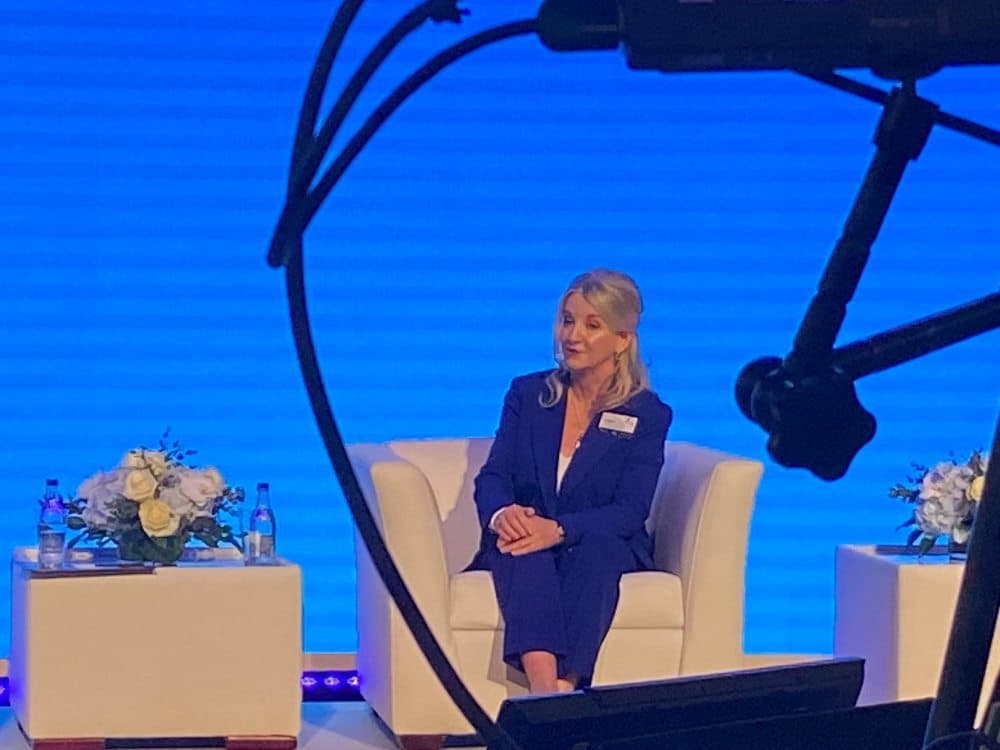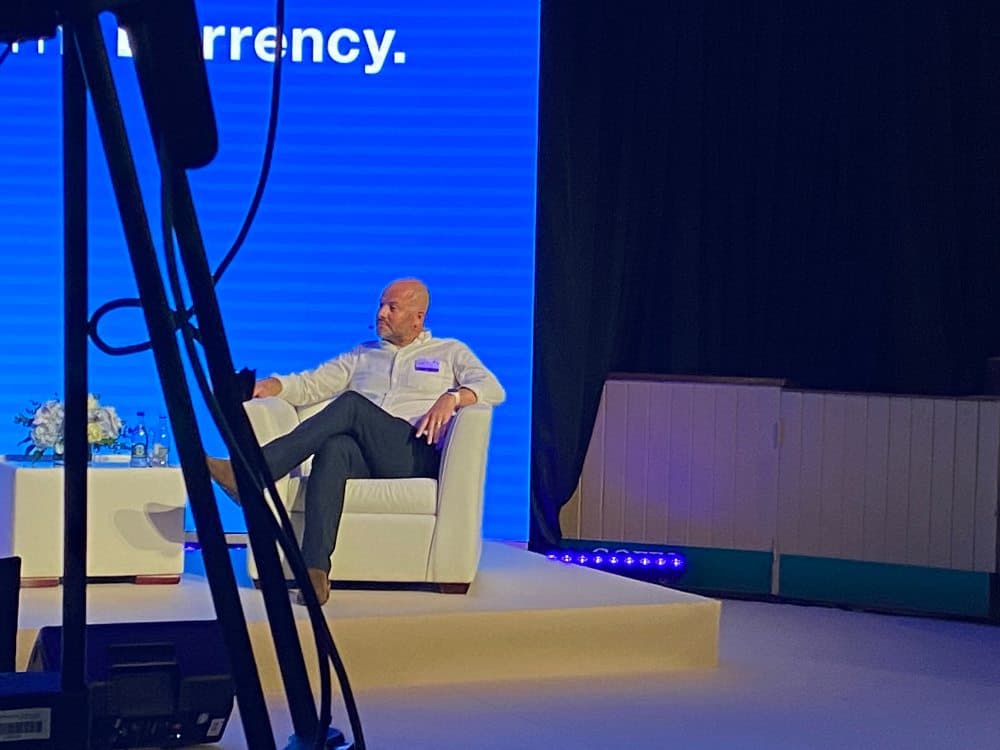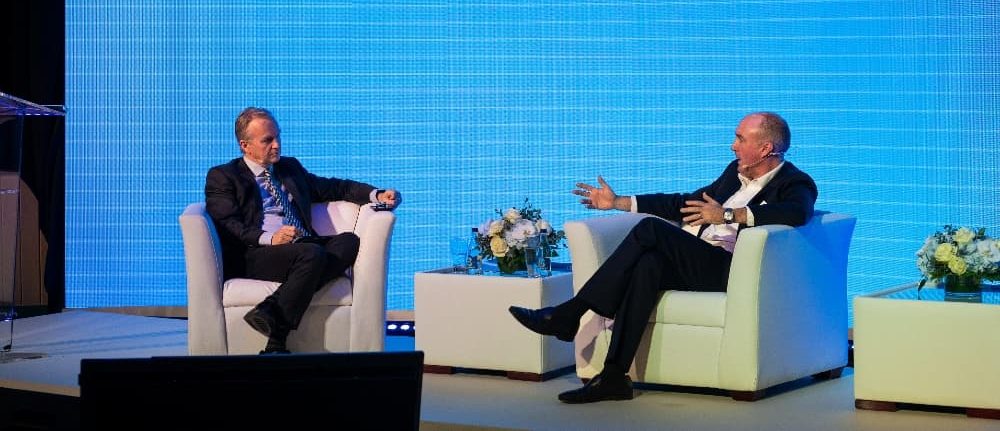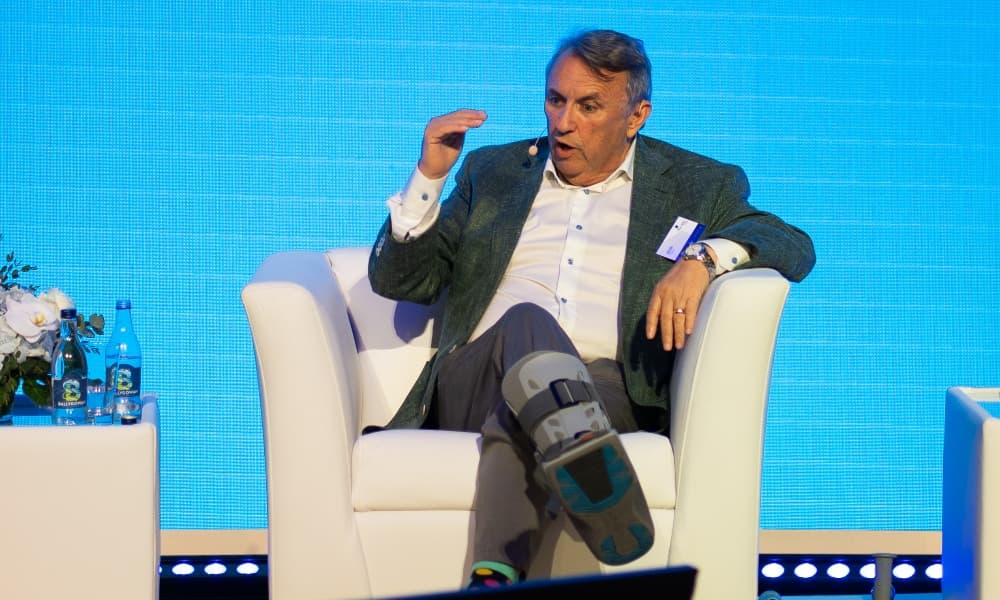On a panel entitled ‘The journey to exit’ at the recent The Real Deal Conference, Sharon McCabe from McCabes Pharmacy and David Maxwell from Boojum spoke candidly about scaling their businesses.
Last month’s The Real Deal 2024 was organised by Renatus, Bank of Ireland and Fitzgerald Power and sponsored by LK Shields, The Currency, The Panel Interpath Advisory and Davy. The event saw leading figures in Ireland’s business world give fascinating accounts of their business careers and achievements to an audience of close to 1,100 people.
At the event Sharon McCabe from McCabes Pharmacy and David Maxwell from Boojum related how despite successful full and partial exits for their respective businesses recently, they are still fully involved in driving their future.
“I had never really gone out with a very specific plan to exit the business, we actually were on a very planned growth strategy that I’d given full energy to”
Sharon McCabe is the driving force behind the McCabes Pharmacy chain, which grew from a small family business to a 32-store chain. McCabes was recently acquired by PHX through its subsidiary LloydsPharmacy, effectively more than doubling the size of the overall business and putting her in charge of an enlarged pharmacy empire. The merged entity of two of the best-known retail pharmacy brands in Ireland will create an industry behemoth with a turnover of more than €200m.
The scaling journey
Sharon McCabe at The Real Deal 2024
“When you see the way that you can transition that well and actually set your colleagues up for success, set the brand up for success, it became a lot less emotional”
She explained that efficiencies in technology and brand made McCabes an ideal acquisition target.
“I had never really gone out with a very specific plan to exit the business, we actually were on a very planned growth strategy that I’d given full energy to. But what one of the interesting things was that in trying to grow the business and put the platforms and the processes in place, we started to make ourselves attractive to people looking in. And when this came up, I suppose our brand looked attractive, the culture of what we were doing was attractive, and they needed a fix. So actually the stars aligned, it has worked out very well.”
David Maxwell is the visionary leader and managing director of the Boojum Mexican street food chain that emerged in Belfast and is now growing across Ireland and the UK. The business sold a controlling stake to Azzuri Group last year. Maxwell spoke about his ambition for the growth of Boojum and reflected on how tough decisions made during the pandemic were the making of the business, accelerating plans to include a delivery model from five years to just five months.
Maxwell agreed that the right decisions at the right time were the making of Boojum.
“When you look back, we made some really good early decisions. We actually we had two plans. Plan A was shut it down, hibernate, which is what a lot of hospitality businesses did. And plan B was to try and create a model where you weren’t running cash and you could keep the lights on and people working safely. And we figured how to do that. Covid was initially awful. But fast forward 18 months, the business that emerged from that period was fitter, leaner, more profitable.”
The exit decision
David Maxwell from Boojum at The Real Deal 2024
“I just decided that there was no better opportunity than the business I was in. And I was far too young to think about retiring”
When it comes to the emotions involved in an exit, McCabe said founders and owners of businesses on the verge of a sale need to consider more than just themselves. “This business is 40 years running. So it’s not an overnight success. You are very invested in it, in terms of your life. Business owner/managers belong to a crazy set – there is no work-life balance. This is your life, your names are above the doors and you feel very reputationally invested to do the right thing. So on one level yes, making the decision to move out is emotional. But when you see the way that you can transition that well and actually set your colleagues up for success, set the brand up for success, it became a lot less emotional.”
At the time of Boojum’s exit, Maxwell said that he along with Renatus were the major shareholders along with minor shareholders. “I was the only shareholder who stayed in the business. We have 17 restaurants around Ireland and just recently opened one in the UK. I suppose it is a bit of a poster child for Irish hospitality at the moment and fast/casual dining in general.”
The decision to exit through the sale of a controlling stake to a larger business last year was based on the reality of what was next for Boojum. “We were looking at our options for the business. And we realised that the next big phase of growth would most likely occur in the UK. But how would we deliver that? Ultimately you need capital to grow and we started thinking about the capital structure and a plan and that required a really significant upfront investment. At that stage it was 2021, we were in the business six years and I was very much in understanding of the private equity cycle and the need to return value back to the shareholders.
“I could have exited 100% at one point but what I decided to do was exit partially.”
Maxwell said that if he had gone for a full exit he would probably have a lot more money and time to enjoy life. “But then after the first year what would you want to do, and ultimately you’d be looking for great businesses to go and invest in. And I just decided that there was no better opportunity than the business I was in. And I was far too young to think about retiring. And my wife would probably kick me out of the house after a while anyway. So after a while it was a simple decision. I wanted to stay. I wanted to see the business through that next phase but equally de-risk and monetise some of that success. But my main priority was to also deliver a great exit for Renatus because we had such a great partnership.”
For Sharon McCabe, the eventual exit came after years of balancing the responsibilities of managing debt in the face of the allure of private equity. Her north star was to do what was right for the business, its owners and its employees.
“I did very actively look for private equity, and I looked at mezzanine finance, and looked at all those options of raising capital. But I’m thankful that during some very bad times, 15 years ago where I had catastrophic business issues, I had been supported by Bank of Ireland and I’ve always been very grateful for that.
“But I felt that I wanted to accelerate the growth and you know, everybody said to me, you need to get more capital, you need more money in the business. So I did go out and I got some super term sheets. But every time I would look and I’d go to pull the trigger, I there was sort of a small voice that said ‘you’re letting go of a lot of value’ that actually seemed too cheap to me. And I just never could really reconcile it. And part of it was that the business cycle of pharmacy is quite different to private equity time expectations. And I felt there was just an enormous pressure on me to deliver results that I wasn’t sure I could really, really sign up to. And in the end, I couldn’t I never pull the trigger.
“So I stayed with just primary debt. And thankfully, Bank of Ireland had always supported me, so I always pushed the debt limit as much as I could.
“I think when looking in at a business, particularly if you’ve got a brand name over a door across the country, people make a lot of assumptions about how you’ve got there, or how you lived. But we bootstrapped, as a family, we’ve lived very modestly, there was no dividends. We paid ourselves salaries and there was no big pay day over 20 or 30 years. And there does come a point where debt is exhausting. I’m a pretty resilient person and we went through difficult times of managing debt and cash sweeps and you do get to a point where you wonder if you should take money off the table.
“But it just never happened. You do have a lot of sympathy for business owners who do. But it’s not that straightforward. I had to hold out in getting the shareholding and structure right for my risk appetite. And thankfully, you know, I feel it worked out well.”
In Boojum’s case Maxwell had experience of private equity as well as bank debt and decided that combining the two made sense for the food chain. “I’m well-versed in the private equity journey and I was well-versed in Irish banking. We had recapitalised the business. In 2023 there was fresh equity coming in to fund the deal initially and there was a bridging facility that we put in place and recently refinanced with Bank of Ireland. They were a new partner and the felt a real belief in the business and were willing to back us. So I’ve always had that combination of private equity and bank debt. And there were some periods where we didn’t do that.
“We were lucky to generate lots of cash during the Covid period. I’m a big believer in what private equity can do for your business. And equally the Irish banks have always been very supportive. So my experience has been very positive.”
-
Bank of Ireland is welcoming new customers every day – funding investments, working capital and expansions across multiple sectors. To learn more, click here







